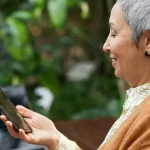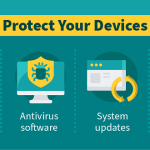
Online shopping tips for the elderly
Online shopping for seniors opens up more choices and at the same time reduces the need for unnecessary travel. Yet, the digital world carries loads of risks with it. Follow the below advice for shopping online without any risk.
Why buy online in old age?
The Internet has changed the way consumers buy, invest or prepare for a trip, and even how they file their taxes ! For seniors, online shopping is a real opportunity . They allow you to:
- obtain products and services that are sometimes difficult to find in local stores;
- buy basic necessities without leaving the house;
- compare prices, without going to stores;
- manage your finances without queuing at the bank;
- pay your bills easily.
Online shopping can still pose risks for seniors , but they can be limited by following a few simple procedures.
Seniors: 7 tips for being wise online consumers
Instead of giving up the benefits of the Internet because of the risks that the web can present to unsuspecting seniors, you might as well learn how to make online purchases without risk.
Use strong, unique passwords
Online shopping sites or banking and other services always (or almost) ask you to open an account to order services or products. The information requested can be very specific or kept to the bare minimum, but you should always choose a password to prevent strangers from impersonating you.
Please note above all that the new regulations for the protection of personal data (GDPR) now impose very strict rules on all sites offering their services to European consumers. The goal: to ensure your privacy and the security of your personal information and data.
- So you don’t have to give more information than you want when shopping online.
Whatever happens, passwords are essential for seniors who want to protect their data.
- Do not share your password. Unless you ask someone you trust for help managing your interactions with the Internet.
Some seniors tend to use simple passwords (a date of birth, the name of a grandson, etc.) They thus make life easier for potential hackers and scammers.
- Preferably choose a password with at least eight characters . It must be composed of numbers and letters, lowercase and uppercase letters, and symbols (?! *, etc.) avoid common names. The best passwords are those that mean nothing… Even if they are not always easy for a senior to remember! Google a password manager, and you won’t even need to remember them.
Do not click on any link
Advertising campaigns today use emails more and more, as evidenced by the promotion tab in Gmail which is always busy!
While most of these emails are legitimate (they are advertisements just like those that appear in commercials between films), some messages are not as honest. Emails from the bank or a banking institution may be fake and created by scammers looking to steal your online account login information. There is no shortage of seniors scammed in this way.
- Do not click on links in emails that seem suspicious to you.
If you don’t know how to distinguish real emails from your bank, don’t hesitate to ask a loved one who uses online banking services more often, or better yet, ask the bank’s technical department .
Beware of deals that seem too good to be true
Usually, that’s exactly what these offers are: too good to be true. This is how you can recognize phishing emails, by the way. It is rare, for example, to win the lottery without having ever played it…
- Be particularly careful with medications sold online at ridiculous prices. They are not always authentic and monitored as they should be. A real danger for seniors, already quite concerned by polypharmacy .
Buy from popular sites
There are many completely honest e-commerce sites, but unfortunately fake merchants also exist. Trust reputable sites, such as Amazon or Fnac, or ask your loved ones about the sites they already use.
You will also find in the IT or economics sections of online newspapers, advice on sites that have proven themselves.
Look for secure sites (https)
When shopping online or transacting financially, only use secure sites or pages: with an address starting with https in the browser URL bar (s for Secure). Seniors are not always aware of the importance of this little, barely visible letter.
To make things easier, browsers translate it visually by adding a small padlock in front of the address. Chrome even writes “Secure” between the padlock and the address.
When shopping from a mobile app, always check that it is the official app, especially for your banking transactions.
Use a credit card
If possible, shop online with your credit card or secure online payment services, such as PayPal. Never send cash or checks.
Credit cards are insured and the responsible company will reimburse you in case of problems. Services like PayPal, Android Pay and Apple Pay, in particular, also provide consumer protection.

Pay attention to refund policies
Some online purchases cannot be easily canceled. For seniors who are fond of traveling and other activities to enjoy retirement, the fine print of user contracts is not always obvious.
Before clicking on the order confirmation, check the site’s cancellation and refund policy. You can usually get a refund, but you often have to pay the shipping costs to return your order.










